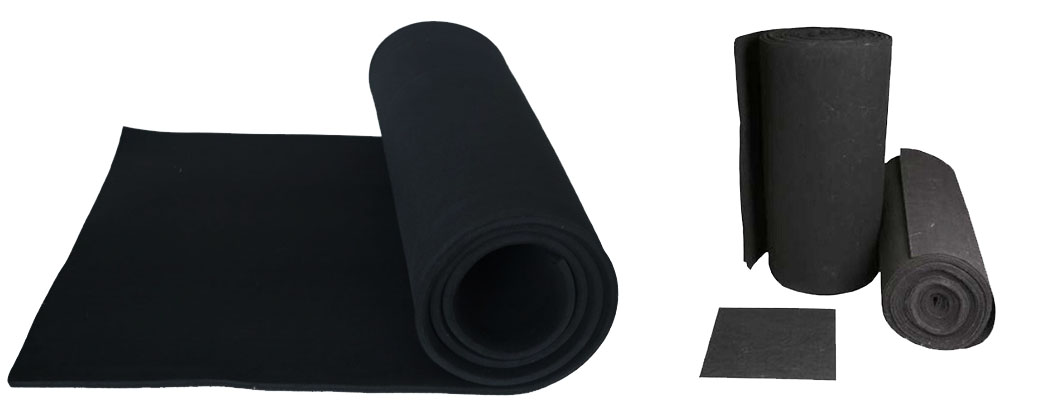The production process of carbon fiber felt
Date:2024-02-26Source:Views:
The production process of carbon fiber felt mainly consists of the following four steps:
1. Carbon fiber mat impregnation and drying process: After screening and inspection, the raw viscose fibers are qualified and enter the pre configured 1% diammonium phosphate impregnation tank. They are immersed in an aqueous solution for 1 hour, then removed and sent to a continuous extrusion equipment for extrusion. The extruded diammonium hydrogen phosphate solution flows back to the impregnation tank. Using natural light energy, place it on a drying rack or dry it with a dryer.
2. Carbon fiber carbonization treatment process: The dried adhesive fiber cloth enters the carbonization furnace and is heated up to 300 ℃. The temperature rises slowly first and then quickly. There are nitrogen gas pipes distributed at the bottom of the furnace, which introduce nitrogen into the furnace as a protective gas for product carbonization. Carbonization is the process of removing volatile non carbon components from fibers, increasing the carbon content and purity of products, and forming carbonized fibers with graphite like microcrystalline structures.
3. Carbon fiber tissue activation treatment process: The carbonized adhesive fiber cloth is heated to around 1400 ℃ (furnace temperature) for activation, and the activated product is the crude product of the carbon fiber felt. At the same time, steam is passed through and high-temperature resistant pipes are used to pass through the fiber felt fabric, increasing the surface area and producing finished carbon fiber felt. The so-called activation process is the addition of a catalyst (such as nitrogen) to increase the number of activated molecules in the entire reaction, making the properties of carbon molecules and atoms more active and energetic.
4. Cutting and coiling: After naturally cooling the carbon fiber mat after the through-hole, use a cutting machine, cutting machine, and coiling machine to cut and roll the corresponding size according to sales needs. After cutting and coiling, temporarily store it for sale.

